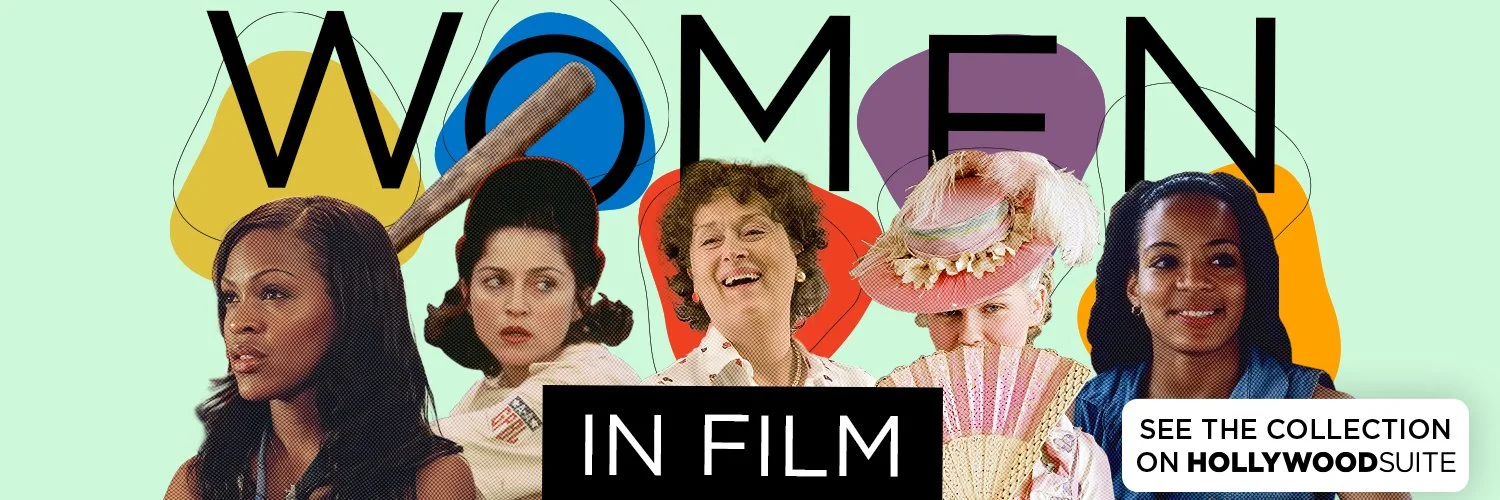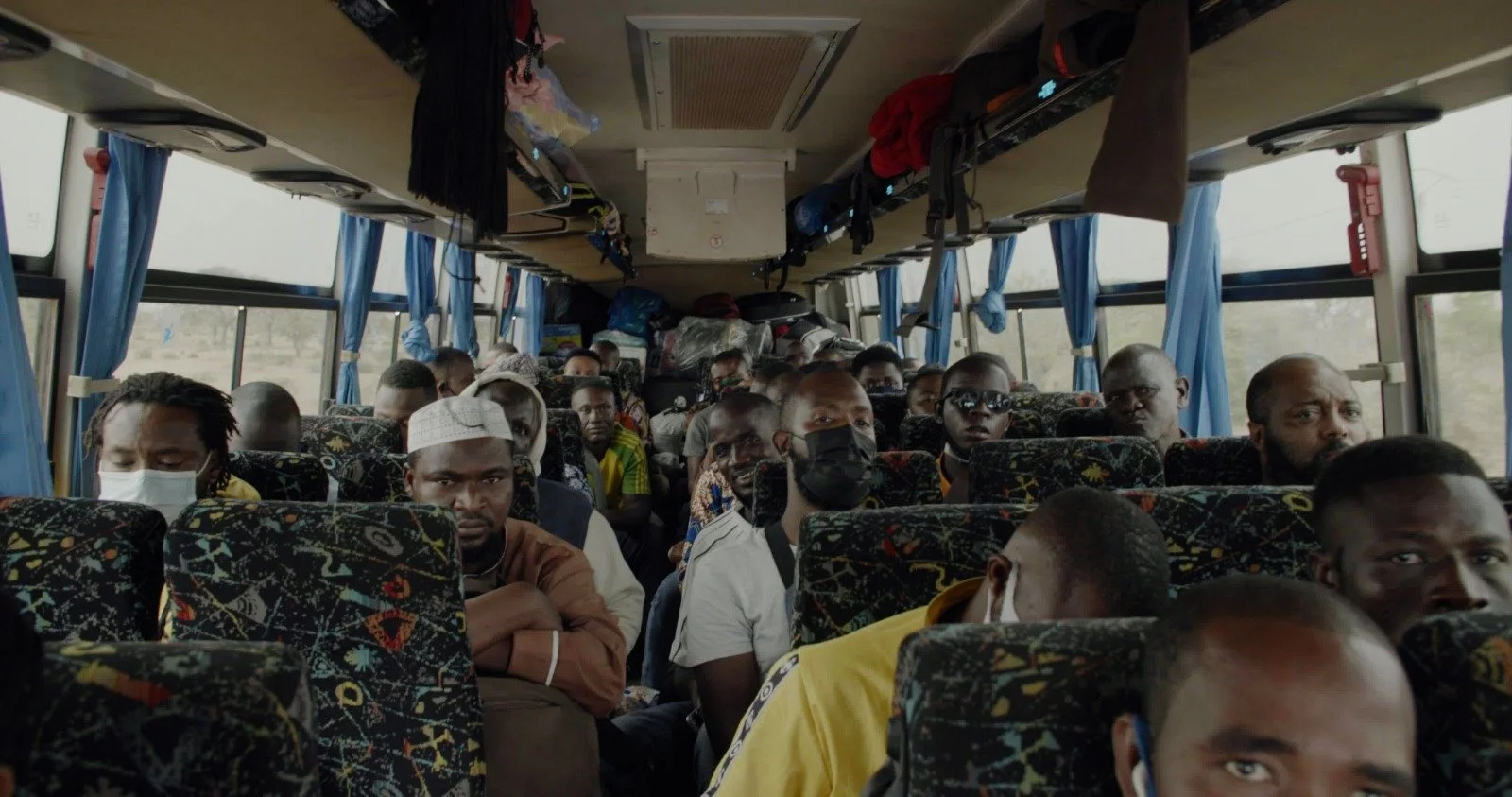Human Rights Watch Canada Film Festival: Baichwal and de Pencier Curate the World's Woes
By Jim Slotek
It seemed an ideal match in 2020 when Canada’s First Couple of cause-themed filmmaking, Jennifer Baichwal and Nicholas de Pencier, agreed to serve as co-chairs for Human Rights Watch Canada’s annual film festival.
As part of the cinematic spin-off of Human Rights Watch - the nonprofit, nongovernmental group that investigates rights abuses worldwide - the duo behind films like Manufactured Landscapes, Anthropocene: The Human Epoch and Into the Weeds threw themselves into the works of like-minded filmmakers.
Human Rights Watch Canada’s festival – which celebrates its 20th anniversary this month – is a sister event of similar festivals which take place in cities like Hong Kong, New York and London, England.
A scene from Evgeny Agineevsky’s Freedom on Fire: Ukraine's Fight for Freedom.
It opens Wednesday, March 8 at Hot Docs Ted Rogers Cinema with Freedom on Fire: Ukraine's Fight for Freedom, Evgeny Afineevsky’s astonishingly intimate look at daily life for people in besieged Ukrainian cities. It continues theatrically until March 12. The five featured films will then go on to Canada-wide digital access, March 13-19.
CLICK HERE for schedules and info.
See below for Liam Lacey’s capsule reviews of the lineup.
The switch from filmmaker to audience member was a learning experience, they say.
“As filmmakers, I really like the opportunity this gives us to completely invert our relationship with the medium,” de Pencier says. “We’re spectators, curators. It’s a great learning shift for us. You become obsessed and myopically focused on a film when you’re making it. This is such a more panoramic view of what the film experience can be.”
Baichwal and de Pencier shared curating duties with Hot Docs programming director Shane Smith and worldwide Human Rights Watch film festival director John Biaggi.
“So, the four of us watch tons of movies,” Baichwal says. “And then we get on these long calls where we analyze them. We talk about how we feel about them, and also how they relate to the work that Human Rights Watch does.
“Which is why there’s such a diversity of films this year. It’s based on the fact that these are the wildly divergent areas that Human Rights Watch does advocacy work for - refugee rights, woman and children, LGBQ+, Indigenous rights, wartime… all of these things.”
Besides Freedom on Fire, the festival’s themes include foreign land-grabs by governments like Saudi Arabia and China (The Grab), female genital mutilation (Koromousso, Big Sister), the refugee experience (No U-Turn) and Uyra: The Rising Forest, an unusual film about an Indigenous trans artist who’s become a teacher about the endangered Amazon eco-systems.
Certifiably stars in the world of eco-awareness, Baichwal says she and her partner, “didn’t expect to become the face of something, introducing things or thanking sponsors. We’ve only ever been in the spotlight when we’re talking about our own work. But it really wasn’t that hard.
“Remember, Human Rights Watch really is the trusted standard of research, research that’s used everywhere, by journalists, by governments, by people who need to know what is going on somewhere.
“And the work is carried out so scrupulously that it can be trusted, which I have to say is a pretty big deal in this fake news world.”
A Global Round-Up of Rights and Wrongs on Film
By Liam Lacey
“It’s a small world but I wouldn’t want to paint it,” said comedian Stephen Wright, a joke I think of every time the annual Human Rights Watch Film Festival comes around.
The “small world” part is the values that most people agree on, dignity, liberty and equality, laid out in the milestone 1948 Universal Declaration of Human Rights.
A scene from No U-Turn.
The paint job part is trying to apply those values to the infinite variety of environmental, cultural, religious and legal crises in every crooked corner of the world.
That’s where the value of the festival comes in. Founded in the 1980s as an offshoot of the New York-based, Nobel Prize-winning human rights monitoring organization Human Rights Watch, the five-film free festival currently takes place in 15 cities around the world. Filmmakers Jennifer Baichwal and Nicholas de Pencier curate the Canadian version which is celebrating its 20th anniversary this year, in partnership with Hot Docs.
“Inspirational” seems too soft a word to describe the weight of these films, the multi-year commitments of the filmmakers, and subjects who demonstrate courage and compassion in life-and-death circumstances. What these films offer is perspective, an antidote to the manipulated stress spikes of both social and traditional media, and models of how some good people persevere against the odds.
FREEDOM ON FIRE: UKRAINE’S FIGHT FOR FREEDOM (March 8, 7:30 pm)
The word “Freedom” sits at both ends of the title of this documentary from Russian-born, Israeli-American filmmaker Evgeny Afineevsky’s film, a sequel to his 2014 film about the Euromaidan protests that toppled the pro-Russian government.
The stutter in the title reflects the urgency of this project, shot and edited since the Russian invasion of February 2022, and updated since the film first appeared at TIFF ‘22. With 43 cinematographers in more than a dozen cities and interviews with people of all ages, the effect is kaleidoscopic, horrifying and heart-breaking, immersing us in a war against civilians, with children sheltered in blasted buildings, images of bloodstained stretchers, and corpses of executed men in the streets. Aimed at sustaining the international support for Ukraine, the film shows many examples of its people’s courage and communal strength, but what sticks is their palpable sense of psychological shock . “War,” says Nataliia Nagorna, a journalist for Ukraine’ 1+1 news channel, “remains incomprehensible.” Or, as a priest says, “How to stay human — that is the hardest and most important part.”
KOROMOUSSO, BIG SISTER (Monday, March 9, 7 p.m.) This is a National Film Board of Canada production, focusing on a group of West African women living in Montreal, including co-director Habibata Oaurme, who were subjected to female genital mutilation in their youth.
An estimated 200-million women in the world today have undergone some form of this crude surgery, aimed at killing female sexual pleasure and often leading to long-lasting health issues. To some degree, the film is intended as an activist documentary, pushing for the Canadian medical system to provide the restoration for their health and sexual self-esteem.
A central scene sees one of the women traveling to a clinic in Burkino-Faso for the procedure. Mostly, though, it’s the opposite of grim, full of candid humour, scenes of the women sharing meals and enjoying hang time, as they inspire each other and work to recover their bodies and self-esteem,.
THE GRAB Friday, March 10 | 7:00 p.m
Gabriela Cowperthwaite (Blackfish) directs this thriller-style documentary, following journalist Nate Halverson and his team of journalists from the California-based non-profit Centre for Investigative Reporting, over a multi-year investigation that began with a Chinese company’s 2014 acquisition of one of the U.S’s biggest pork producers, Smithfield Foods.
The film’s subject quickly becomes bigger than one film can cover, as his team looks at the bigger pattern: Water and food resource grabs around the world, including a Saudi Arabian mega-farm in Arizona, and a trove of emails related to Erik Prince, founder of the mercenary army, and his operations in Africa. Countries such as Russia, Saudi Arabia, China and the United States, anticipating the effects of climate change, are aggressively acquiring and plundering food and water resources from less powerful countries, especially in Africa.
UYRA: THE RISING FOREST Saturday, March 11, 7 p.m.
The most original, and beautiful, of the films here, is Juliana Curi’s portrait of a non-binary Indigenous Brazilian artist, known as Uyra, who, in performance, adopts the persona of a male-female, plant-animal in a colourful mask, who performs in a costume that resembles the scuttling movements of a brightly tropical insect.
All this is a metaphor for the natural cycles of death and rebirth, drawing from science (Uyra was formerly an academic working in the conservation field) and Indigenous spirituality and drag.
In a country where both environmentalists and LGBT people are at risk of being killed, Uyra, lives openly and teaches youth his artistic process, serving as a model for others as a “pioneer species” of human being.
NO U-TURN March12, 1 p.m.
Sunday, March 12 | 1:00 p.m. screening)
Recent films such as Mati Diop’s Cannes prize winner, Atlantics and Ousmane Samassekou’s documentary, The Last Shelter, explored the dangerous, sometimes fatal, attempts of young West African men and women to make their way across the desert and open ocean to get to Europe.
Ike Nnaebue is a prominent Nollywood director in Lagos, Nigeria who made that trek himself 26 years ago, only to turn back in fear. Returning to Nigeria, he went to film school and established his career.
In this ruminative autobiographical documentary, Nnaebue returns to the route he first embarked on, through Benin, Mali, Mauritania, and on to Morocco. He meets people and makes friends trying the same journey, and others who stayed at various points along the way, too fearful, broke or ashamed to return home.
Through his interviews, Nnaebue often finds these travelers were motivated, less by economic or security reasons, as a desire for a change of identity.
The Human Rights Watch Film Festival. March 8-12 at the Hot Docs Ted Rogers CInema. Free or $10 donation to Human Rights Watch. Streaming is available Canada-wide (March 13-19). To reserve free tickets, click here.




